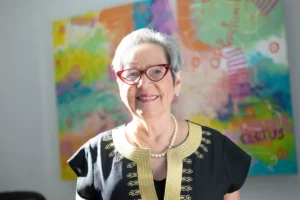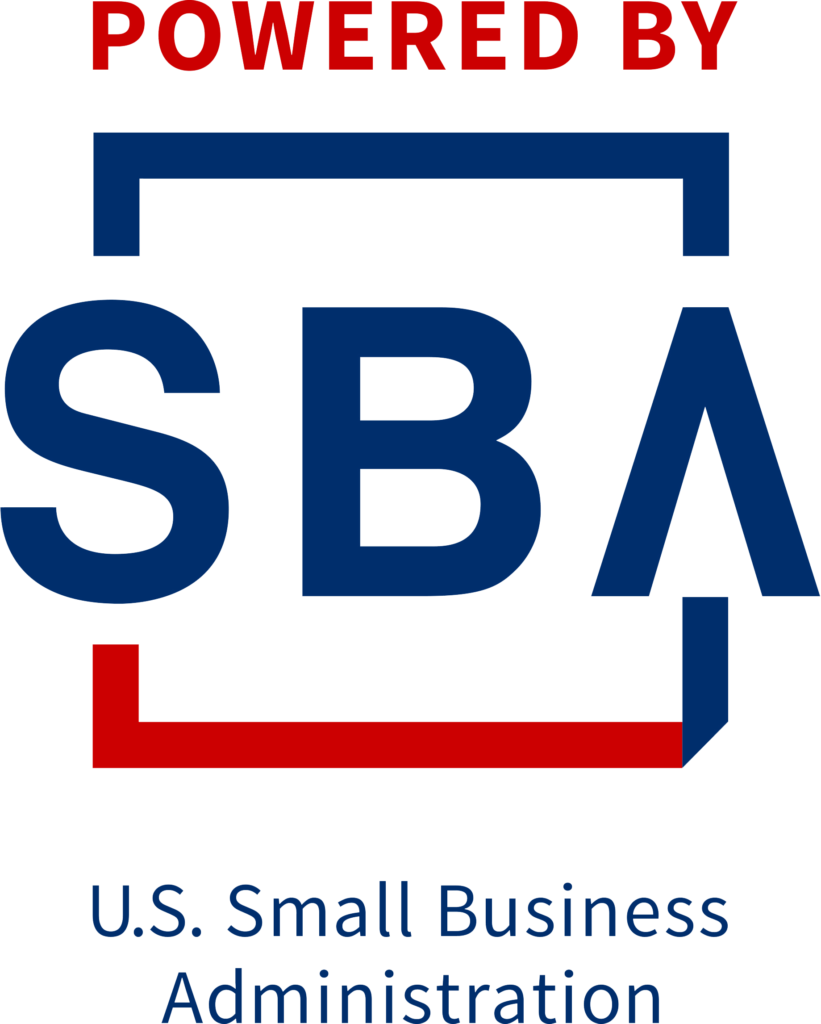
San Antonio Report
Don’t be afraid of debt.
That’s one of Janie Barrera’s main pieces of advice for small-business owners — perhaps not surprising, given that Barrera has been in the business of lending money for almost 30 years
As the founder and now outgoing president and CEO of LiftFund, Barrera said she meets with business owners regularly who are on the cusp of growth but are nervous about borrowing.
“When I make presentations, I say, ‘How do you think that rich people got rich? By using their own money? No.’”
LiftFund, a nonprofit that offers loans to high-risk businesses and entrepreneurs who aren’t eligible for traditional bank loans, announced last month that Barrera will be succeeded by Laurie Vignaud.
Vignaud has more than 30 years of executive experience in banking and community development, including more than a decade at Capital One and, more recently, as president and CEO of Unity National Bank of Houston, the only Black-owned bank in Texas. She is expected to take the helm at LiftFund July 10.
But Barrera is not stepping down just yet. The former nun who started LiftFund — originally known as Accion Texas — in 1994 wants to help with the transition and celebrate the nonprofit’s 30-year anniversary on March 20 next year. The party will be held at the Boeing Center on the South Side, she said, with “900 of our closest friends.”
LiftFund has plenty to celebrate. It has grown from its roots in San Antonio to become one of the largest microlenders in the country.
Since its inception, LiftFund, with a total lending portfolio balance of $52 million, has provided more than $450 million to more than 25,000 businesses in its 15-state service area and boasts an average 96% repayment rate. A study by Steve Nivin, an economics professor who served as the City of San Antonio’s chief economist for several years, found that from 2010 through 2016, every dollar LiftFund lent created $14 in economic activity.
From bus to brick and mortar
Olla Express Cafe is an example of that multiplier effect. When owner Andrea Ley was first considering quitting her IT job at USAA in 2017, she imagined a coffee truck that served café de olla, a traditional Mexican coffee made with cinnamon and piloncillo, a traditional nonrefined sugar from that country.
With help from LiftFund loans, and later grants, Ley has expanded her business beyond the Volkswagen bus she first retrofitted to a line of bagged coffee with new flavors, piloncillo syrups and other products, plus a brick-and-mortar cafe, which moved from Los Patios to Quincy and St. Mary’s streets downtown at the end of May. A hiring banner is the first thing visitors to the website see.
Getting approved for her first loan was the impetus Ley said she needed to quit her day job.
“In the beginning, I was hesitating to ask for help, economic-wise, because you think it’s going to be so hard,” Ley said. “But with the LiftFund team, I really feel like they’re working to help you.”
A well-timed gift
In 2020, with the pandemic decimating small businesses across the country, a $10 million gift from philanthropist MacKenzie Scott brought Barrera to tears and offered the nonprofit a unique opportunity.
LiftFund leadership debated how best to use the unrestricted gift and ultimately chose to lower the interest rates it offers. At the time, interest rates for most of its loans were running above 12%, Barrera said. Scott’s gift allowed LiftFund to lower its interest rates to 9%.
Even as the Federal Reserve has raised interest rates several times over the past year, LiftFund has only raised its lowest rate to 9.9%.
Meanwhile, banks have continued to raise rates in response to Federal Reserve increases. The Wall Street Journal reported Thursday that the median interest rate for a variable-rate, small-business term loan was 7.44% in the fourth quarter of 2022. That’s up 3.42 percentage points from a year ago, according to the Federal Reserve Bank of Kansas City.
Higher interest rates and tightened bank lending standards have increased the pool of small businesses that could benefit from a microlender like LiftFund, Barrera said, while the 9.9% interest rate could mean the difference between being able to afford a loan or not.
“One hundred percent of the customers or clients that come to LiftFund and become borrowers are not eligible for bank loans” because they are too high risk, she said. Often these are minority- or veteran-owned sole proprietorships or “micro-companies” that employ fewer than four people. The majority of LiftFund clients have fewer than 10 employees.
In San Antonio, just under half of roughly 34,000 small businesses are micro-companies, according to a study commissioned by the city and released in 2021 that assessed the city’s small business ecosystem in an effort to reduce longstanding socioeconomic disparities within the city’s Black and Hispanic communities.
The study noted that minority-owned businesses — already relatively underrepresented in San Antonio — were hit harder by the pandemic, something LiftFund saw firsthand as it worked with businesses to stay afloat in those difficult early months of widespread closures.
Barrera recalled reaching out to businesses to see how LiftFund could help and finding a common need for websites, so businesses could continue to operate in some fashion online.
“Less than 50% of the businesses in our portfolio had websites. So our team started concentrating on that,” she said.
Beyond pandemic relief money
When federal COVID-19 relief money started flowing to cities and counties, San Antonio and Bexar County earmarked tens of millions in relief grant funding for small businesses. LiftFund became an intermediary, distributing those millions to small businesses.
With those grants now distributed, small businesses have begun turning back to loans, Barrera said. For a time, that included zero-interest loans backed by the City of San Antonio, which doubled its usual annual support of LiftFund last year from $250,000 to $500,000.
“That allowed us to say, ‘We’ve run out of the grant money, but here’s a loan at 0% interest,’” she said. “I think in three months we used up that half million.”
Now LiftFund is back to offering 9.9% interest loans. And while LiftFund does not compete with banks, it does compete with payday lenders and so-called “fintechs,” companies that use technology to offer financial services such as loans.
Barrera said these companies can quickly offer loans, but then charge exorbitant interest rates or set other onerous terms that can trap borrowers in a cycle of debt.
One of the major takeaways of the small business study commissioned by the city was that business owners of color in San Antonio often lack awareness of and access to nonpredatory business services that would allow them to grow.
Ley said she never misses an opportunity to educate others about what LiftFund offers.
“When I find people who are working [to start] businesses, I encourage them to look for the resources the city and LiftFund are providing. Sometimes we feel that we are not the right candidate to get them. But you never know until you go and let them help you or guide you.” Doing that, she said, “changed my mindset” about what she is capable of and what is possible.
Disclosure: Janie Barrera is a member of the San Antonio Report board of directors.


